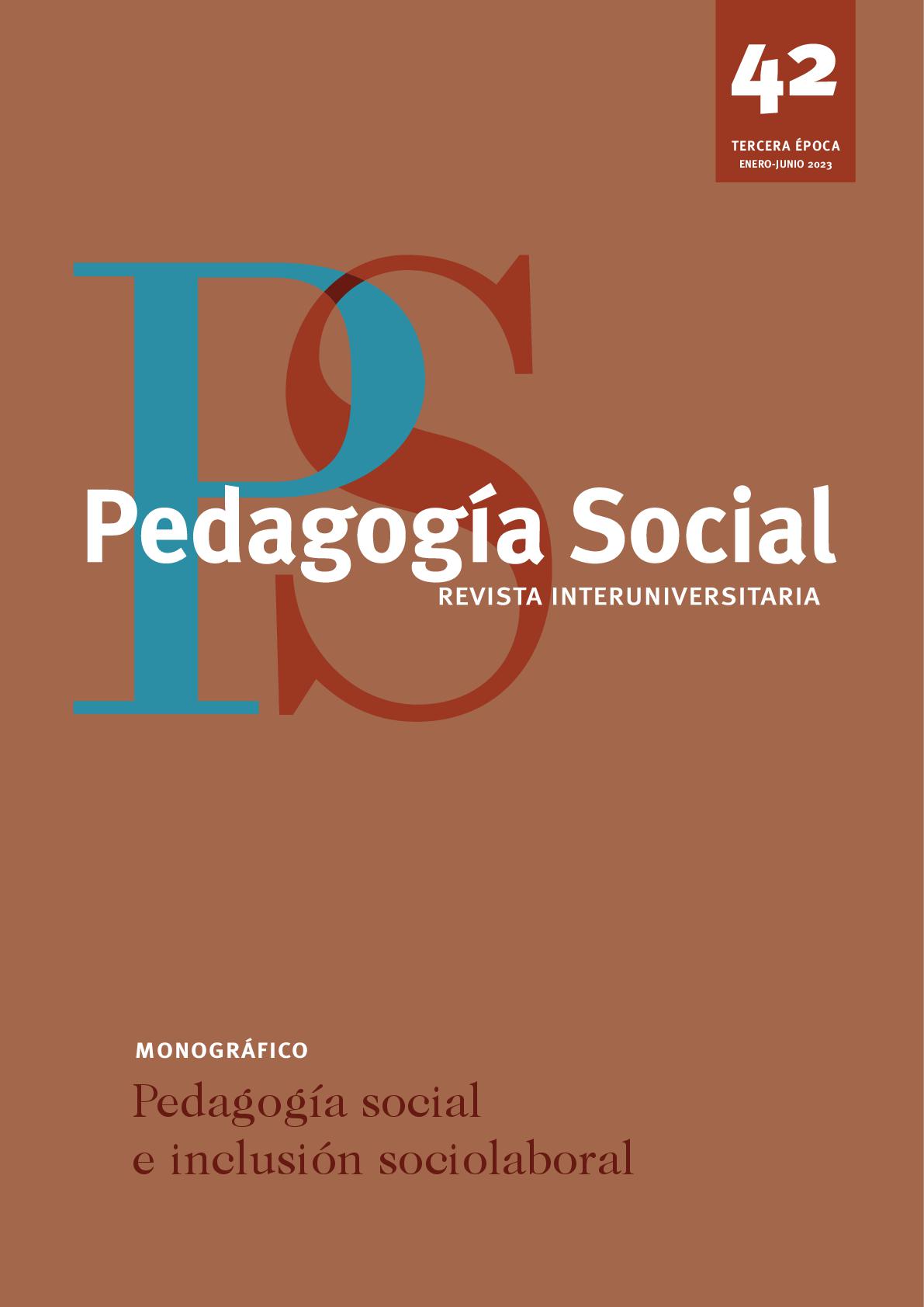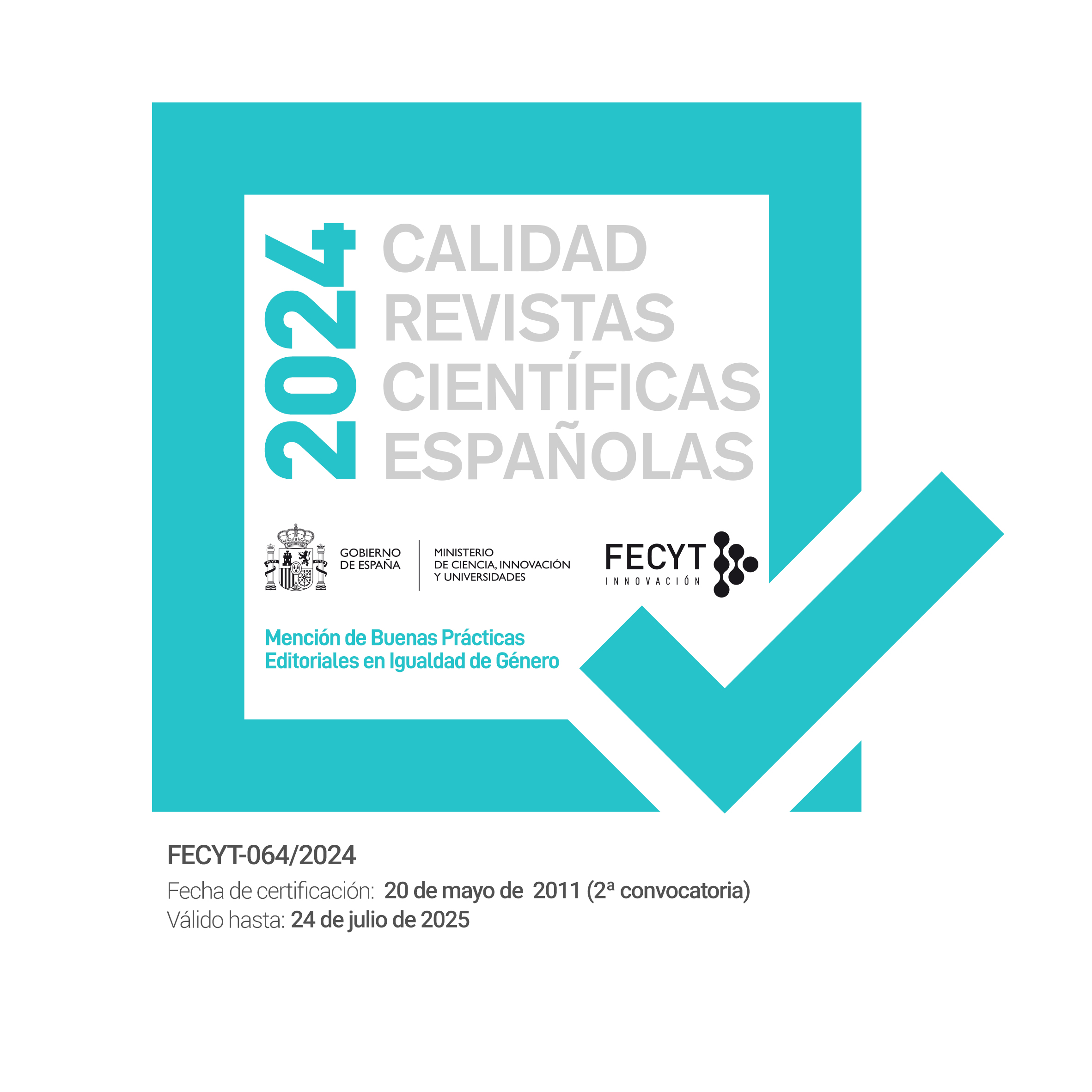The focus on human rights in the educational projects of Galicia
DOI:
https://doi.org/10.7179/PSRI_2023.42.09Keywords:
Rights Education, High school, Human rights, Citizenship, TransformationAbstract
A mixed investigation was undertaken with the objective of analyzing the presence of the focus on human rights in the Educational Projects of the Center of 116 Institutes of Secondary Education in Galicia, selected through a stratified sampling. A descriptive analysis of the axial categories associated with each of the human rights descriptors and the content
of the explicit references to human rights was carried out. The results revealed that rural environments mention each of the dimensions in their projects to a greater extent than urban centers. Likewise, 34 explicit references to human rights were noted in 3 centers (2.58%); which allude to all the principles of the action plan of the world program for Human Rights education, except for the development of capacities in educational leaders. It is considered necessary to promote the focus on human rights at the secondary level.
Downloads
References
Aldana-Zavala, J.J., & Argüelles, I. (2018). Derechos Humanos y Dignidad Humana. Iustitia Socialis: Revista Arbitrada de Ciencias Jurídicas y Criminalísticas, 3(4), 8-23. https://www.fundacionkoinonia.com.ve/ojs/index.php/Iustitia_Socialis/article/view/119
Álvarez-Sepúlveda, H.A. (2020). El uso del debate en la Educación en Derechos Humanos. Problemas, desafíos y potencialidades. Mendive. Revista de Educación, 18(2), 219-234. http://scielo.sld.cu/scielo.php?script=sci_abstract&pid=S1815-76962020000200219
Asociación Española de Investigación para la Paz [aiPAZ] (s.f.). SGEP. Seminario Galego de Eduacción para a Paz. https://aipaz.org/centros/seminario-galego-de-educacion-para-a-paz-sgep/
Bailón, M. (2009). Derechos humanos, generaciones de derechos, derechos de minorías y derechos de los pueblos indígenas; algunas consideraciones generales. Centro Nacional de Derechos Humanos de México, 4(12), 103-128. https://www.corteidh.or.cr/tablas/r28614.pdf
Barrientos-Soto, A. (2021). Educación social, educación alternativa y las escuelas de segunda oportunidad: perspectivas globales y latinoamericanas. RES:Revista de Educación Social, (32), 129-155. https://eduso.net/res/wp-content/uploads/2021/05/res-32-andrea.pdf
Cárdenas, L., & Da Rodda, M. (3-5 de octubre de 2011). Cómo utilizar el paradigma de desarrollo humano y derechos humanos [Discurso principal]. Conferencia Internacional de Derechos Humanos y Desarrollo Humano, Santo Domingo, República Dominicana. http://ciudadesamigas.org/wpcontent/uploads/2015/10/Cardenas_y_Da_Rodda.pdf
Conde, S. (2015). El papel del educador y la educadora en derechos humanos. Defensor, Revista de Derechos Humanos, 10, Año XIII, 7-22. https://cdhcm.org.mx/wp-content/uploads/2015/10/Dfensor-1015.pdf
Dapía-Conde, M.D., & Fernández-González, M.R. (2018). Educación social y escuela en España: a propósito de la formación e inserción laboral. Revista Iberoamericana de Educación, 76, 209-228. https://doi.org/10.35362/rie7602857
Del Pozo-Serrano, F.J., Jiménez-Bautista, F., & Barrientos-Soto, A. (2018). Pedagogía social y educación social en Colombia: como construir la cultura de paz comunitaria en el postconflicto. Zona Próxima, (29), 32-51. https://doi.org/10.14482/zp.29.0004
Del Río Sánchez, O. (2009). TIC, derechos humanos y desarrollo: nuevos escenarios de la comunicación social. Anàlisi: quaderns de comunicació i cultura, (38), 55-69. https://www.raco.cat/index.php/analisi/article/view/142472
Esteban-Ibáñez, M., Amado-Muñoz, L.V., & García-Pérez, R. (2018). Mediación en centros escolares. El papel de la educación social. Cuestiones pedagógicas, 26, 83-96. https://idus.us.es/handle/11441/83502
Fantova, F. (2019). Los nuevos servicios sociales y las profesiones de la intervención social. RES. Revista de Educación Social, 29, 11-27. http://eduso.net/res/wp-content/uploads/2020/06/nuevossersociales_res_29.pdf
Faúndez, A., & Weinstein, M. (2012). Ampliando la Mirada: La integración de los enfoques de género, interculturalidad y derechos humanos. Santiago de Chile: UNFPA, PNUD, ONU MUJERES, UNICEF.
Ferrer, M. (2005). La población y el desarrollo desde un enfoque de derechos humanos: intersecciones, perspectivas y orientaciones para una agenda regional. CEPAL y Naciones Unidas. https://repositorio.cepal.org/handle/11362/7198
Gándara, M. (2019). Los derechos humanos en el siglo XXI. Una mirada desde el pensamiento crítico. Clacso.
García-Vita, M.M., Añaños, F.T., & Medina-García, M. (2020). Educación social escolar en la construcción de cultura y educación para la paz: propuestas metodológicas de intervención socioeducativa. Campos en Ciencias Sociales, 8(2), 47-71. https://doi.org/10.15332/25006681/6012
Gómez, M.C., & Olveira, M.E. (2018). El proyecto educativo, documento principal del centro escolar. Boletín Virtual, 7(4), 70-75. https://revista.redipe.org/index.php/1/article/view/482
Liccioni, E. (2022). La netnografía: una vía alterna en investigación online. Revista FACES, 3(2), 77-90. http://revistascientificasuc.org/index.php/revFACES/article/view/269
LOE (2006). Ley Orgánica 2/2006, de 3 de mayo, de Educación. https://www.boe.es/buscar/pdf/2006/BOE-A-2006-7899-consolidado.pdf
Marín, A. (2013). Contribución a una teoría crítica de los derechos humanos. RDUNED. Revista de Derecho UNED, (13),97-114. http://revistas.uned.es/index.php/RDUNED/article/view/12092/11384
Naciones Unidas, Asamblea General. (1948). Declaración Universal de Derechos Humanos. https://www.ohchr.org/en/udhr/documents/udhr_translations/spn.pdf
Naciones Unidas, Asamblea General (1966). Pacto Internacional de Derechos Económicos, Sociales y Culturales. https://www.ohchr.org/sp/professionalinterest/pages/cescr.aspx
Naciones Unidas, Asamblea General. (2011). Declaración de las Naciones Unidas sobre Educación y Formación en Materia de Derechos Humanos. https://www.ohchr.org/sp/issues/education/educationtraining/pages/undhreducationtraining.aspx.aspx
Naciones Unidas, Asamblea General. (2015). Transformar nuestro mundo: La Agenda 2030 para el Desarrollo Sostenible. https://unctad.org/system/files/official-document/ares70d1_es.pdf
Naciones Unidas y UNESCO (2017). Programa Mundial para la Educación en Derechos Humanos. Tercera Etapa. Plan de acción. https://www.ohchr.org/Documents/Publications/ThirdPhaseWPHREducation_SP.pdf
Nikken, P. (1994). El concepto de derechos humanos. http://datateca.unad.edu.co/contenidos/90150/Curso_AVA/Curso_AVA_8-02/Entorno_de_Conocimiento_8-02/Bibliografia_Unidad_2/Concepto_de_Derechos_Humanos.pdf
Nova Escola Galega (s.f.). Educadoras/es pola paz. http://www.nova-escola-galega.org/WebDefault.aspx?MenuInd=4&MenuId=169&Lng=gl-ES&tl=0
Nova Escola Galega, Educadoras e Educadores pola Paz, Asociación Galego-Portuguesa de Educación para a Paz y Facultade de Ciencias de Educación da Universidade Da Coruña (2008). En memoria de Xesús R. Jares. Aula de innovación educativa, (176), 67-69. https://www.grao.com/es/producto/en-memoria-de-xesus-r-jares
OCDE (2021). Panorama de la educación. Indicadores de la OCDE. 2021. Informe Español. Madrid: Ministerio de Educación y Formación Profesional. https://www.educacionyfp.gob.es/inee/dam/jcr:3922aacd-04c0-45ac-b8d4-4aebb9b96ab5/panorama-2021-papel.pdf
Reyes-Pérez, L.S., Hasse-Riquelme, V.S., & Silva-Burgos, L.M. (2020). Educación en Derechos Humanos para el Trabajo Social en Chile: una mirada desde los estándares internacionales. Prospectiva. Revista de Trabajo Social e intervención social, (30), 259-281. https://doi.org/10.25100/prts.v0i30.8858
Rodino, A. (2015). La educación con enfoque de derechos humanos como práctica constructora de inclusión social. Revista IIDH, (61), 201-224. https://www.corteidh.or.cr/tablas/r34228.pdf
Rodino, A. (2014). Pensar la Educación en Derechos Humanos como Política Pública. Revista de ciencias sociales, segunda época, (25), 129-139. http://www.unq.edu.ar/advf/documentos/5939558c6ba3b.pdf
Rodríguez-Acosta, V. (2018). Educación para los derechos humanos.: Un estudio necesario. Revista Estudios del Desarrollo Social: Cuba y América Latina, 6(2), 160-177. http://scielo.sld.cu/scielo.php?script=sci_arttext&pid=S2308-01322018000200009
Rodríguez-Otero, M. (2017). Paradigma de Derechos Humanos en Trabajo Social. En S. Mancinas, M. Zúñiga, C. Arroyo, M. Rodríguez-Otero, & B. Tamez, Teorías y Modelos de Intervención Social. Fundamentos Básicos y Crítica, (pp.193-226). Editorial Esfera Pública.
Rodríguez-Otero, L.M. (2022). Derechos Humanos y trabajo social. Un análisis desde las nuevas masculinidades y la diversidad sexual. Tirant Humanidades, EUTS y UAS.
Touriñán, J. (2018). Concepto de educación y conocimiento de la educación. Redipe.
UNESCO. (1960). Convención Relativa a la Lucha contra las Discriminaciones en la Esfera de la Enseñanza. http://portal.unesco.org/es/ev.php-URL_ID=12949&URL_DO=DO_TOPIC&URL_SECTION=201.html
UNESCO (2022). Resumen de Datos del ODS4 2021: Puntos de referencia nacionales del ODS 4: cumplir con nuestro compromiso, resumen. https://unesdoc.unesco.org/ark:/48223/pf0000380396_spa
Downloads
Published
How to Cite
Issue
Section
License

This work is licensed under a Creative Commons Attribution-NonCommercial-ShareAlike 4.0 International License.
Copyright and right to archive
The published version of the articles can be self-archived by their authors in open access institutional and thematic repositories. However, Pedagogía Social. Revista Interuniversitaria must authorize partial or global reutilisation on new papers or publications.
Published papers must be cited including the title of the journal Pedagogía Social. Revista Interuniversitaria, issue, pages and year of publication
Ethical responsibilities
Pedagogía Social. Revista Interuniversitaria does not accept any material that has been previously published in other documents or publications. Authors are responsible for obtaining the required permissions for partial or global reproduction any material from other publications, and to correctly quote its origin.
Pedagogía Social. Revista Interuniversitaria is obliged to detect and report fraudulent practices.
Only those who have intellectually contribute to the development of the paper must appear as authors.
The journal expects authors to declare any commercial partnership that might entail a conflict of interest with respect to the submitted article.
Authors must mention in the article, preferably in the “methodology” section, that the procedures used during the samplings and controls have been made after getting informed consent.
The journal will not use any received contribution in a way other than the goals described in these guidelines.
Copyright Notice
© Pedagogía Social. Revista Interuniversitaria. Papers published in both the printed and online versions of this Journal are property of Pedagogia Social. Revista Interuniversitaria, being required to cite the source in any partial or total reproduction.
Unless otherwise stated, all content of this electronic journal is distributed under "Creative Commons Attribution-Non commercial 3.0 Spain" (CC-by-nc) license for use and distribution. The informative version and the legal text of this license is available here. This has to be expressly stated in this way when necessary.






